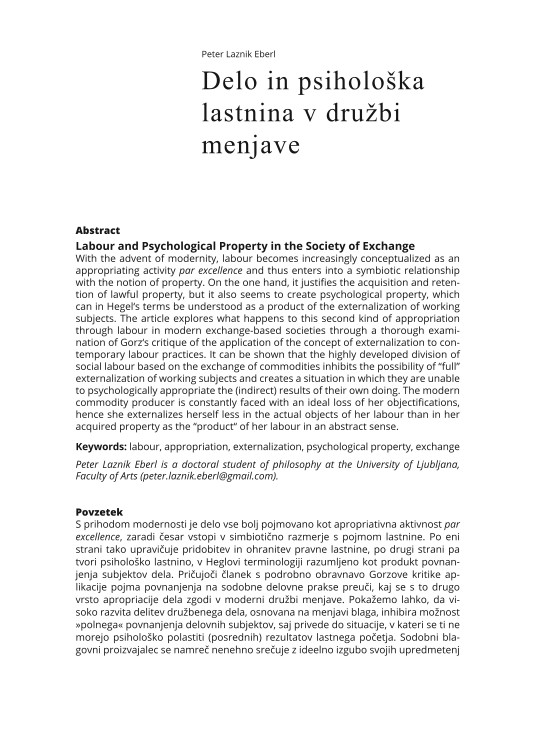With the advent of modernity, labour becomes increasingly conceptualized as an appropriating activity par excellence and thus enters into a symbiotic relationship with the notion of property. On the one hand, it justifies the acquisition and retention of lawful property, but it also seems to create psychological property, which can in Hegel‘s terms be understood as a product of the externalization of working subjects. The article explores what happens to this second kind of appropriation through labour in modern exchange-based societies through a thorough examination of Gorz‘s critique of the application of the concept of externalization to contemporary labour practices. It can be shown that the highly developed division of social labour based on the exchange of commodities inhibits the possibility of “full” externalization of working subjects and creates a situation in which they are unable to psychologically appropriate the (indirect) results of their own doing. The modern commodity producer is constantly faced with an ideal loss of her objectifications, hence she externalizes herself less in the actual objects of her labour than in her acquired property as the “product“ of her labour in an abstract sense.




